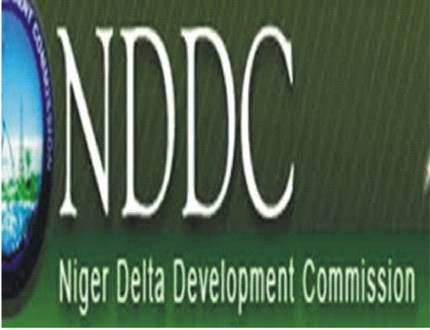The Niger Delta Development Commission (NDDC) has expressed readiness to help in the case of COVID-19 in the country.
This is as the acting Managing Director, Prof Kemebradikumo Pondei, said the nation has only 500 ventilators.
Pondei who spoke in Port Harcourt said that Nigeria of about 200 million people has only 500 ventilators; worse, most of the few oxygen plants in the country have broken down.
These he said are the findings of the Niger Delta Development Commission (NDDC) which has pledged to intervene in the Niger Delta on COVID-19.
The Acing MDt told newsmen that the commission just carried out a study to determine how to intervene.
He said; “This morning we found that there are about 500 ventilators in the entire country. We are exploring avenues to see if we could intervene in providing ventilators. Similarly, oxygen is difficult to procure in the country.
“The Federal Government through the ministry of health has a policy on oxygen which has not been disseminated very well. There are very few oxygen production plants in the country and some of the existing ones have actually broken down. But the provision of oxygen is key to the treatment.”
The NDDC boss said the commission was looking at contributing in the area of treatment because most of the activities so far had been on prevention; social distancing and hand washing as well as using sanitizers.
He remarked: “We are also looking at the drugs that have been used so far in other climes for treatment; there are some anti-viral drugs that we are trying to make available in a proactive manner. The NDDC is going a step above what others are doing.
He assured that the commission would intervene to protect the people of the Niger Delta region from the dreaded Coronavirus disease, COVID-19.
Pondei said as an intervention agency, the commission would collaborate with other stakeholders in the fight against the COVID-19 pandemic.
He said: “We have started looking at different isolation points in the nine states of the Niger Delta region. We are interacting with the states to find out what is on ground and we are taking stock of the ventilators and oxygen in health facilities across the region.”
The NDDC CEO observed that the treatment of the disease was not limited to drugs but included the ability to make sure that the patients were able to breathe properly and this should be done using ventilators.
“As for testing, we are leaving that with Nigeria Centre for Disease Control (NCDC) which is coordinating the testing, but we will also like to let people know that most of the kits that are being used are not efficient and cannot detect COVID-19. This is because everybody has one way or another been exposed to Coronavirus and those kits just test for antibodies that already exist in most of us.”
Pondei affirmed that the NDDC would identify the isolation centres in the Niger Delta states so as to assist in strengthening them and building their capacity for service delivery.
He added: “It is not enough to build a place and say it is an isolation centre. It has to be properly equipped and properly stocked. They should have personal protective gears for health workers and must have dedicated conveniences for each of the patients. Anything you use for one patient cannot be used for another patient.”
Pondei stressed the need for people to imbibe simple health tips like social distancing, not smoking in a crowd, good coughing etiquette and regular hand washing with soap and water.
He advised that hand washing techniques be taught on radio and television.
Speaking on the free medical programme of the NDDC, the acting MD said that the commission’s 2019 budget made provisions for its resuscitation, stating: “Right now, the directorate of Health, Education and Social Services (EHSS) is already working on a template for it.
“We are also looking at people that will partner with us. What we are planning is to roll out a monthly programme that will run across the nine states of the region. Our plan is to have three in every state under the NDDC mandate in a month at the same time. We believe that it will reduce the disease burden, especially in the hard to reach areas of the region.”
Pondei said that his inaugural lecture last year at the Niger Delta University was prophetic because it was entitled: “Viruses: Ignored, Neglected, Poorly Understood with Resulting Devastating Consequences.”
He decried a situation where people fail to learn from experience, noting: “When Ebola Virus was our problem in 2014, we did exactly what we are doing now. Hand washing became serious with sanitizers and temperature testing but after Ebola, everything went back to normal.
“Few isolation wards were allowed to be used for other things. In developed nations, you build more isolation centres and equip them properly but in Nigeria here when this Coronavirus disappears, we will then forget all we have learnt and we will not plan for something subsequently.”

